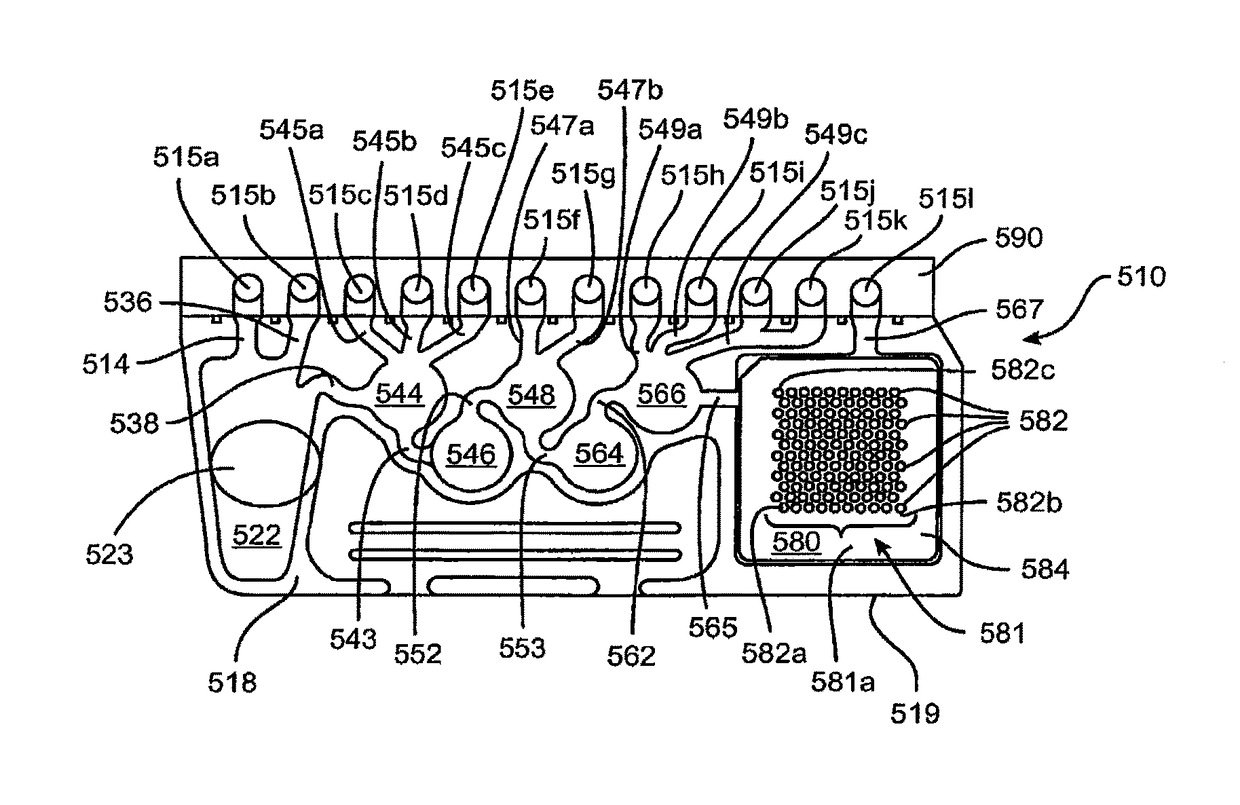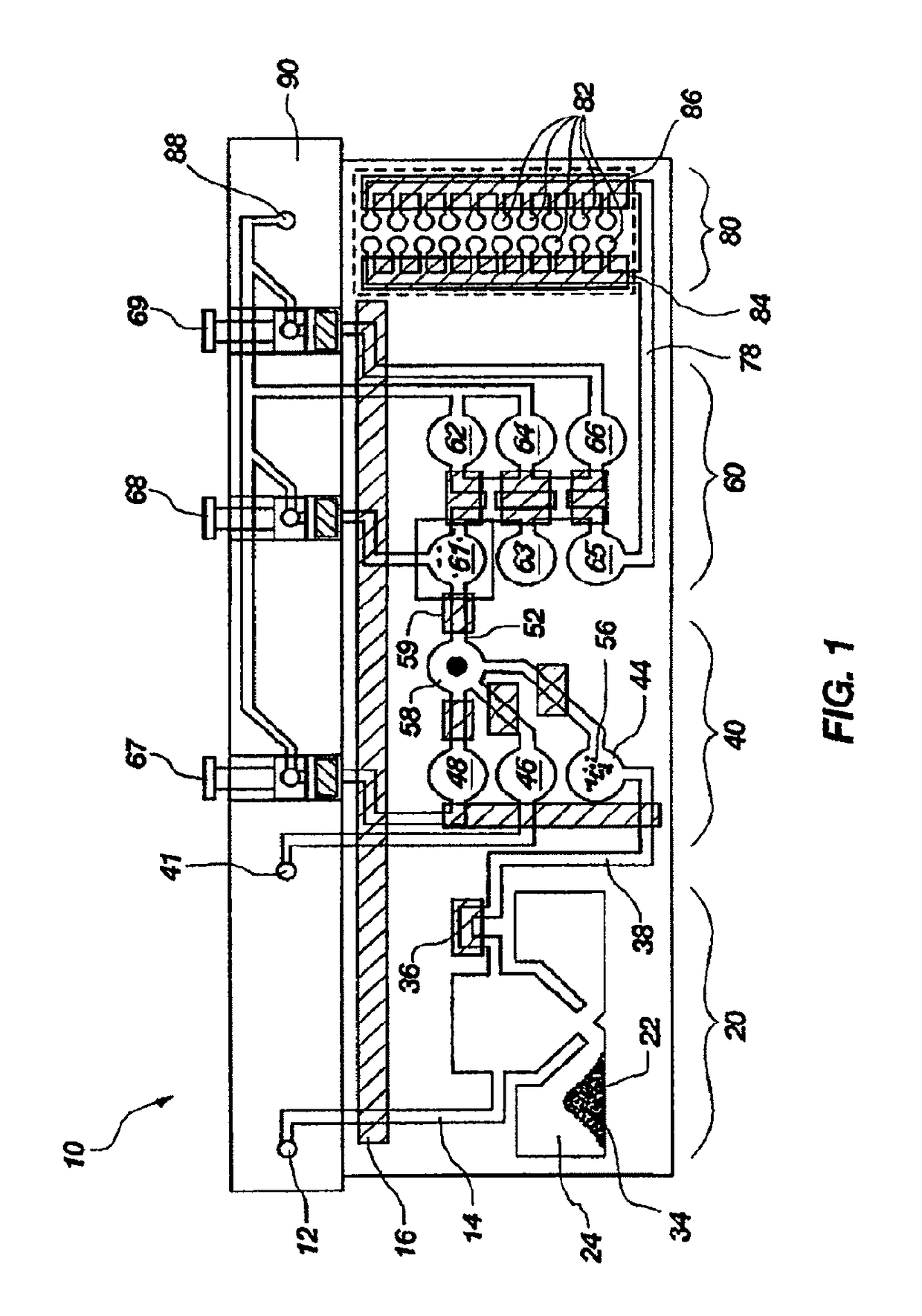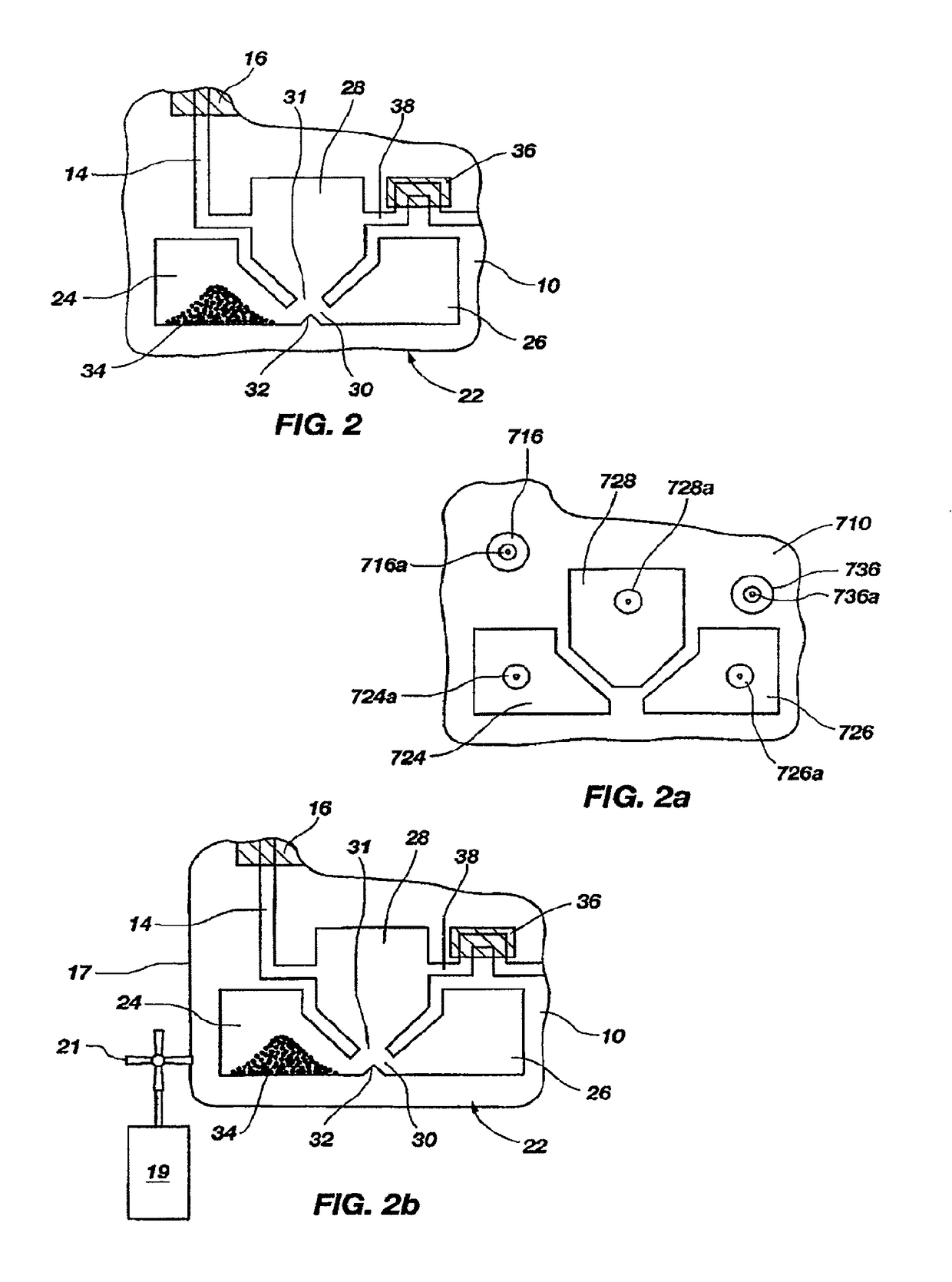Organism identification panel
a technology of identification panel and organism, applied in the field of organism identification panel, can solve the problems of species identification may or may not be performed, and achieve the effect of minimizing contamination and robust amplification
- Summary
- Abstract
- Description
- Claims
- Application Information
AI Technical Summary
Benefits of technology
Problems solved by technology
Method used
Image
Examples
example 1
ltiplex PCR
[0136]A set of reactions was run in a pouch 110 of FIG. 5, on an instrument similar to instrument 800 but configured for pouch 110. To show cell lysis and effectiveness of the two-stage nucleic acid amplification, 50 μL each of a live culture of S. cerevisaie and S. pombe at log phase was mixed with 100 μL of a nasopharyngeal aspirate sample from a healthy donor to form the sample, then mixed with 200 μL lysis buffer (6M guanidine-HCl, 15% TritonX 100, 3M sodium acetate. 300 μL of the 400 μL sample in lysis buffer was then injected into chamber 192a of pouch 110.
[0137]The pouch 110 was manufactured with 0.25 g ZS beads sealed in three-lobed blister 122. Second-stage primers, as discussed below, were also spotted in blisters 181 and 182 during manufacture of pouch 110. The pouch 110 was loaded as follows:[0138]115a sample and lysis buffer, as described above,[0139]115b magnetic beads in the lysis buffer,[0140]115d-e wash buffer (10 mM sodium citrate),[0141]115g elution buf...
example 2
ity PCR
[0173]The above example uses pouch 110 of FIG. 5. Pouch 110 has five negative control blisters 181, five positive control blisters 183, and ten low volume sample blisters 182. Pouch 210 of FIG. 6 increased the number of low volume sample blisters 282 to 18. However, high density array 581 of pouch 510, shown in FIG. 15 can have 120 or more second-stage wells 582. This increase in the number of second-stage reactions enables a wide set of potential diagnostic and human identification applications without the need to increase the size of the pouch and its instrument. Various examples are described herein.
[0174]In one example, it is known that standard commercial immunofluorescence assays for the common respiratory viruses can detect seven viruses: Adenovirus, PIV1, PIV2, PIV3, RSV, Influenza A, and Influenza B. A more complete panel illustratively would include assays for additional five viruses: coronavirus, human metapneumovirus, BOCAvirus, Rhinovirus and non-HRV Enterovirus....
example 3
ontrols
[0178]Controls for highly multiplexed assays can be problematic, especially in clinical diagnostic settings where quality must compete with cost per test. The high-density array 582 of pouch 510 potentially increases this problem because of the increased number of diagnostic targets that can be assayed in a single run. Various types of controls are discussed herein.
[0179]Illustrative process controls include mixing an intact organism, for example an organism containing an RNA target, into the patient sample before injecting the sample into the pouch. Such a target could be an intact RNA bacteriophage (MS2 or Qβ) or an intact plant RNA virus (Tobacco Mosaic Virus) or an mRNA present in an intact yeast. Outer primers specific for the RNA target would be present in the first-stage PCR and a well 582 containing the inner primers would be present in the high density array. Detection of amplification product in this well 582 confirms that all of the steps of the process are working...
PUM
| Property | Measurement | Unit |
|---|---|---|
| thick | aaaaa | aaaaa |
| operating temperature | aaaaa | aaaaa |
| collision velocity | aaaaa | aaaaa |
Abstract
Description
Claims
Application Information
 Login to View More
Login to View More - R&D
- Intellectual Property
- Life Sciences
- Materials
- Tech Scout
- Unparalleled Data Quality
- Higher Quality Content
- 60% Fewer Hallucinations
Browse by: Latest US Patents, China's latest patents, Technical Efficacy Thesaurus, Application Domain, Technology Topic, Popular Technical Reports.
© 2025 PatSnap. All rights reserved.Legal|Privacy policy|Modern Slavery Act Transparency Statement|Sitemap|About US| Contact US: help@patsnap.com



